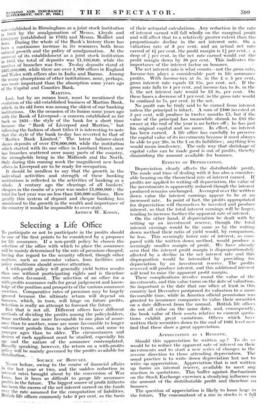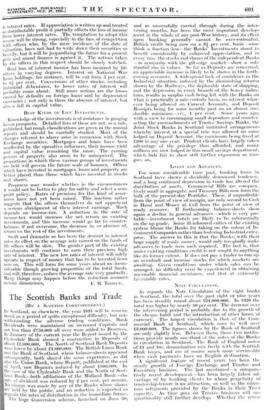APPRECIATION AS A RESERVE.
Should this appreciation be written up ? To do so would be to reduce the apparent rate of interest on their investments and to start a new series of changes in the reverse direction to those attending depreciation. The usual practice is to write down depreciation but not to write up appreciation. Appreciation that is not written up forms an internal reserve, available to meet any reaction in quotations. This buffer against- fluctuations on the Stock Exchange exercises a steadying influence on the amount of the distributable profit and therefore on bonuses.
The question of appreciation is likely to loom large in the future. The concomitant of a rise in stocks is a WI in interest rates, If appreciation is written up and treated as distributable profit it partially offsets the loss of income from lower interest rates. The temptation to adopt this course will be strong, especially in the face of competition with offices who, by the mere incidence of the date of valuation, have not had to write doWn. their securities so heavily, but it will be jeopardizing the future for a present gain and sound finance. is, against it. The actions taken by the offices in this respect should be closely watched. Real loss of interest incoine has been incurred by life offices in varying degrees. Interest on National War Loan holdings, for instance, will be cut from 5 per cent. to 3i per cent. Conversions of other stocks, including industrial debentures, to - lower rates of interest 'will probably come about. Still more serious are the losses caused by defaults on foreign loans and by depreciated currencies ; not only is there the absence of interest, but also a fall in capital value.













































 Previous page
Previous page